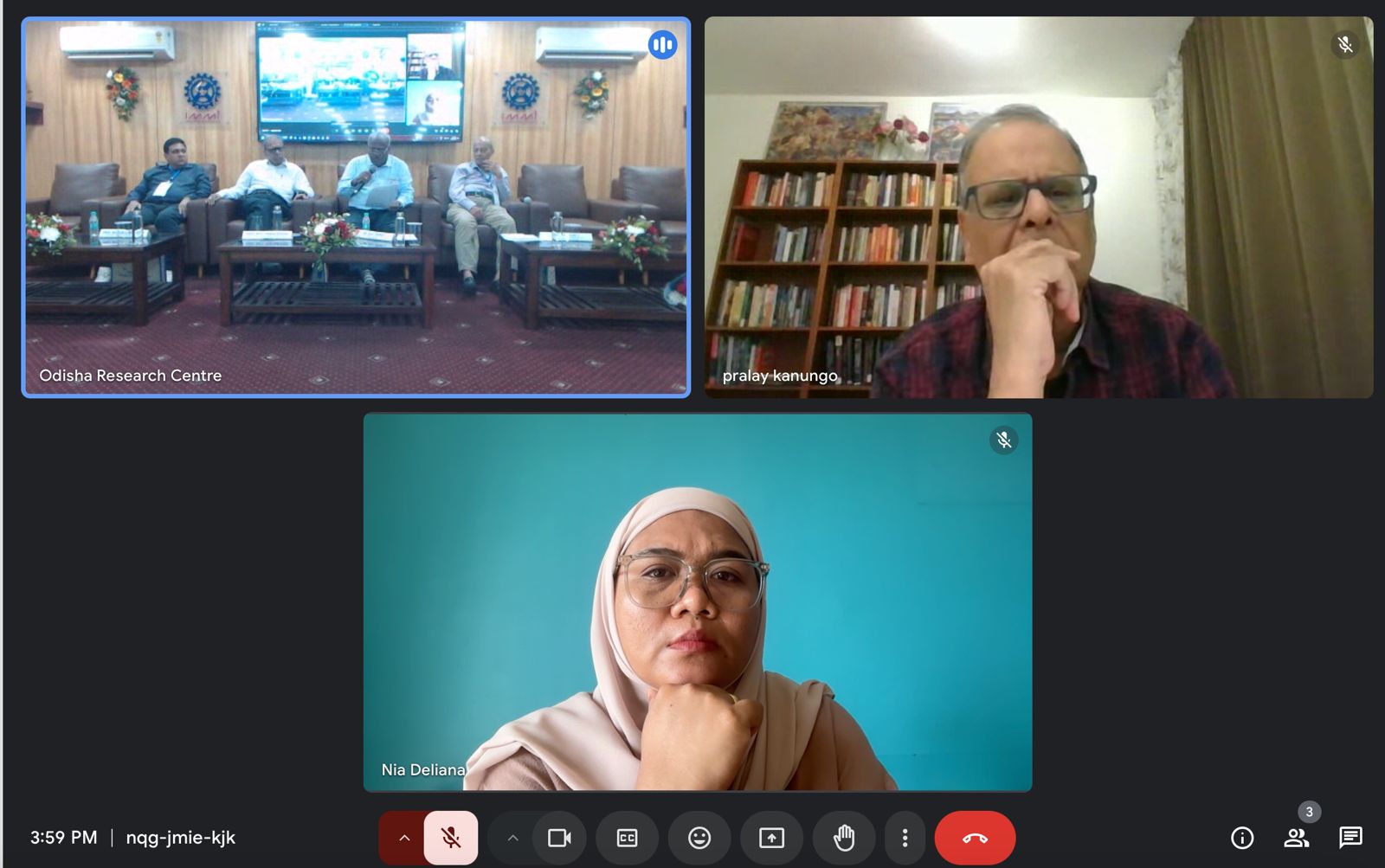
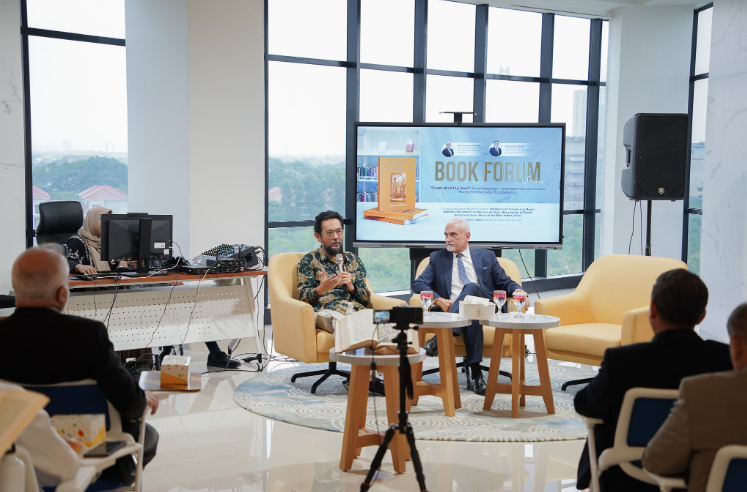
Universitas Islam Internasional Indonesia (UIII) in collaboration with the Brazilian embassy in Jakarta hosted a Book Forum entitled “From Brazil to Java: South American—Southeast Asia Connections During the First Age of Globalization”. Held at the UIII’s Jusuf Kalla Library on 9 April 2025, the event brought together scholars and foreign diplomats to explore the overlooked transoceanic linkages between two vibrant regions of the Global South.
The forum was opened by the Rector of UIII Prof. Jamhari Makruf, and featured a keynote speech by H.E. George Monteiro Prata, the Ambassador of Brazil to Indonesia, and a deep historical reflection by Prof. Farish A. Noor, Professor of Political History at UIII’s Faculty of Social Sciences FOSS. It focused on the 17th century book by Johan Nieuhof, “Voyages and Travels into Brasil and the East Indies” (1682), which describes the Dutch presence in both Brazil and Indonesia during the 17th century.
In his remarks, Ambassador Prata highlighted the growing relevance of Global South narratives in global affairs. He emphasized how former colonial battlegrounds have transformed into diplomatic partners leading the charge for rebalancing global power. “The voices of the Global South are no longer in the periphery,” he said. “We are at the center of the dialogue on the future of international relations, trade, and development.”
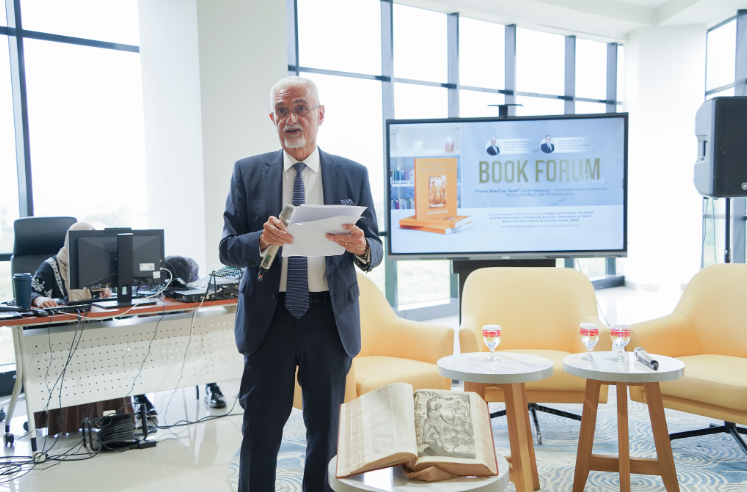
The ambassador explained that both Brazil and the Indonesian archipelago were important areas for European colonial powers, especially the Dutch, and faced similar experiences of foreign rule, local resistance, and global trade. “Our countries have shared stories, but many people don’t know about them. I hope this event helps to change that,” he added.
Prof. Farish Noor, known for his critical lens on colonial history and global connectivity, took the discussion further by challenging dominant historical paradigms on globalization. One of the problems with the conventional framing of globalization is that it often centers around New York, London, or Paris. “But in reality, connections between Latin America and Southeast Asia existed long before modern globalization took shape,” he noted.
He then urged the exploration of these historical moments through a different lens. “We need to question inherited narratives, especially those that portray cultures through static museum displays, as if your identity is just your food, your dance, your clothing. These are not just symbols to be preserved. They are expressions of lived, evolving experiences.”
Drawing on rich imagery, Prof. Noor described how colonial representations often distorted or romanticized non-Western peoples. “Growing up, I encountered images of half-naked non-Europeans all the time — powerful yet exoticized. These are the ghosts of orientalist narratives that still haunt us.” Drawing from the book under discussion, Prof. Farish emphasized the importance of visual archives and lesser-known historical records that reveal the presence of African communities in colonial Southeast Asia, possibly former slaves or conscripts. These stories, he argued, challenge mainstream historical narratives and highlight the complex, multi-directional flows of people, culture, and power long before the internet age.
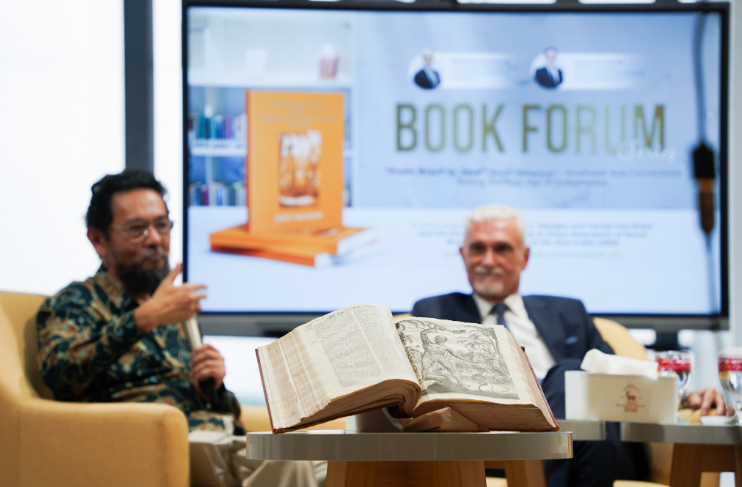
He concluded by calling for a decolonized understanding of history that emphasizes entanglement over separation. “The age of exploration was not just about European ships and trade. It was a human moment where everyone, including people from Java and Brazil, contributed to the shaping of a new world.”
Prof. Farish called on scholars and institutions to strengthen academic ties across the Global South and move beyond the traditional West-centered model of knowledge production. “We need to encourage more collaboration between scholars from Latin America, Africa, and Asia that break out of colonial categories and allow us to look at the world from the South, looking at itself,” he said. “History is not just about the past. It’s about reclaiming the stories that connect us and imagining futures where our narratives are not marginal, but central.
The forum was attended not only by scholars, but also foreign ambassadors to Indonesia from Angola, Guatemala, Armenia, Argentina, Spain, Portugal, Ecuador, and Peru. Their presence showed strong support for building better relations between Latin America and Southeast Asia.
As part of UIII’s ongoing commitment to fostering interdisciplinary dialogue, the Book Forum exemplified how historical inquiry can illuminate present challenges and forge new paths of collaboration between regions often marginalized in mainstream academic and political narratives.
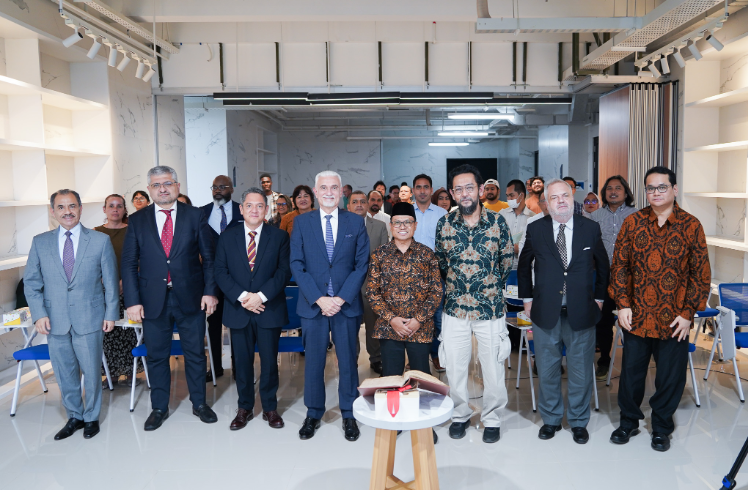

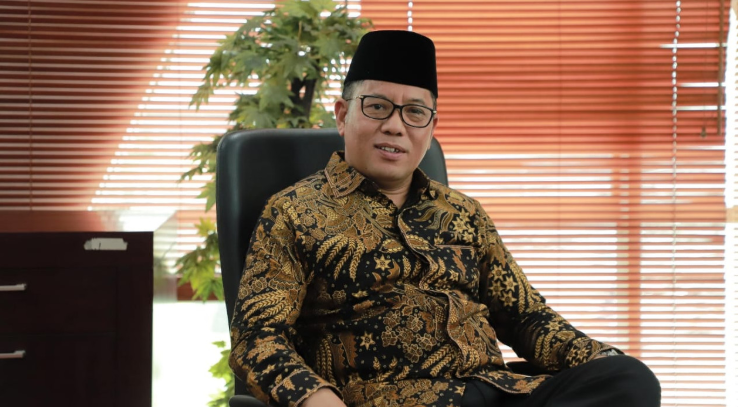

Universitas Islam Internasional Indonesia